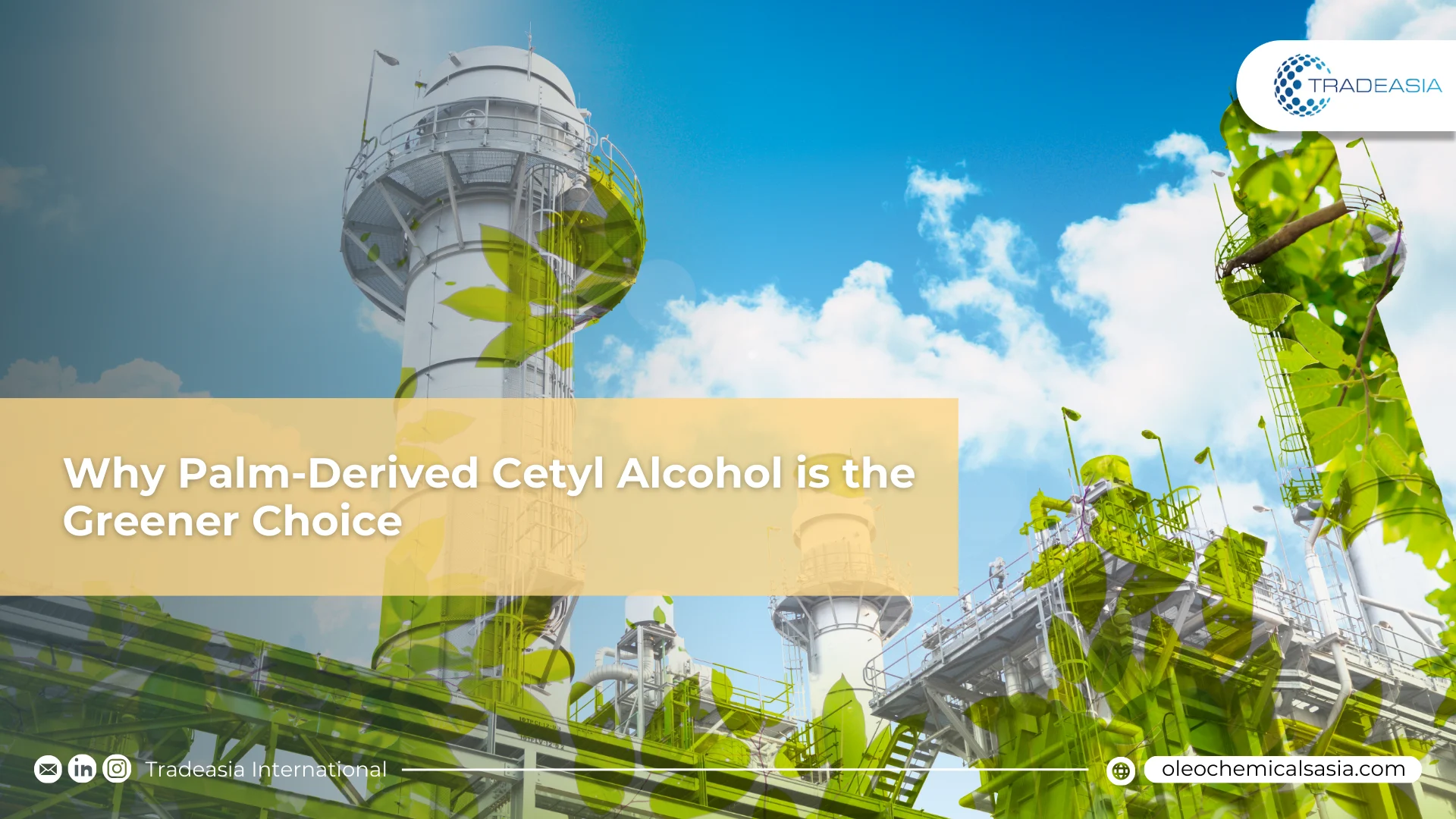Why Palm-Derived Cetyl Alcohol is the Greener Choice

Table of Content
-
Decoding the Carbon Story: Bio-Based vs. Petrochemical
-
Designed for Disappearance: The End-of-Life Advantage
When telling a credible sustainability story, the details matter. A comprehensive view requires looking at an ingredient’s entire lifecycle, and for cetyl alcohol, this reveals a powerful environmental advantage. For businesses making conscious choices about their raw materials, the data offers a clear direction. At Tradeasia International, we champion these data-driven decisions, providing our partners with access to bio-based oleochemicals that offer a scientifically supported, greener alternative.
Decoding the Carbon Story: Bio-Based vs. Petrochemical
The fundamental choice for fatty alcohols comes down to two origins: renewable plants or finite fossil fuels. Life Cycle Analyses (LCAs) consistently show that the carbon footprint of producing palm-derived cetyl alcohol is significantly lower than its synthetic, petroleum-based counterpart—often by as much as 40-60%. This advantage stems from the simple fact that palm trees capture CO2 from the atmosphere as they grow. This inherent carbon sequestration is a primary reason why over 90% of the global fatty alcohol market is now supplied by vegetable-based sources. As many industry leaders are discovering, the smartest choice is often the one that aligns with nature's own efficient processes.
Designed for Disappearance: The End-of-Life Advantage
An ingredient's impact doesn't end when the product is used; its end-of-life profile is equally important. Here again, the natural origin of cetyl alcohol provides a crucial benefit. As a plant-derived fatty alcohol, it is readily biodegradable, meaning microbes in the environment can easily break it down. Standard industry tests confirm it biodegrades by more than 90% within just 28 days, allowing it to return harmlessly to the natural carbon cycle. This clean finish stands in stark contrast to many synthetic chemicals, offering a powerful selling point for environmentally conscious brands and consumers.
Sources:
-
Life Cycle Assessment of Oleochemicals. Journal of Cleaner Production. https://www.sciencedirect.com/journal/journal-of-cleaner-production
-
Biodegradability of Fatty Alcohols. The American Oil Chemists' Society (AOCS). https://www.aocs.org/
-
Natural vs. Synthetic Oleochemicals: A Comparative Overview. Palm-Chemicals. https://www.palm-chemicals.com/

Leave a Comment